You can tell a lot about the moral quality of a society by what is, and is not, considered news. From last Tuesday, Parliament Square was wrapped in wire mesh.
Articles
Articles and publications
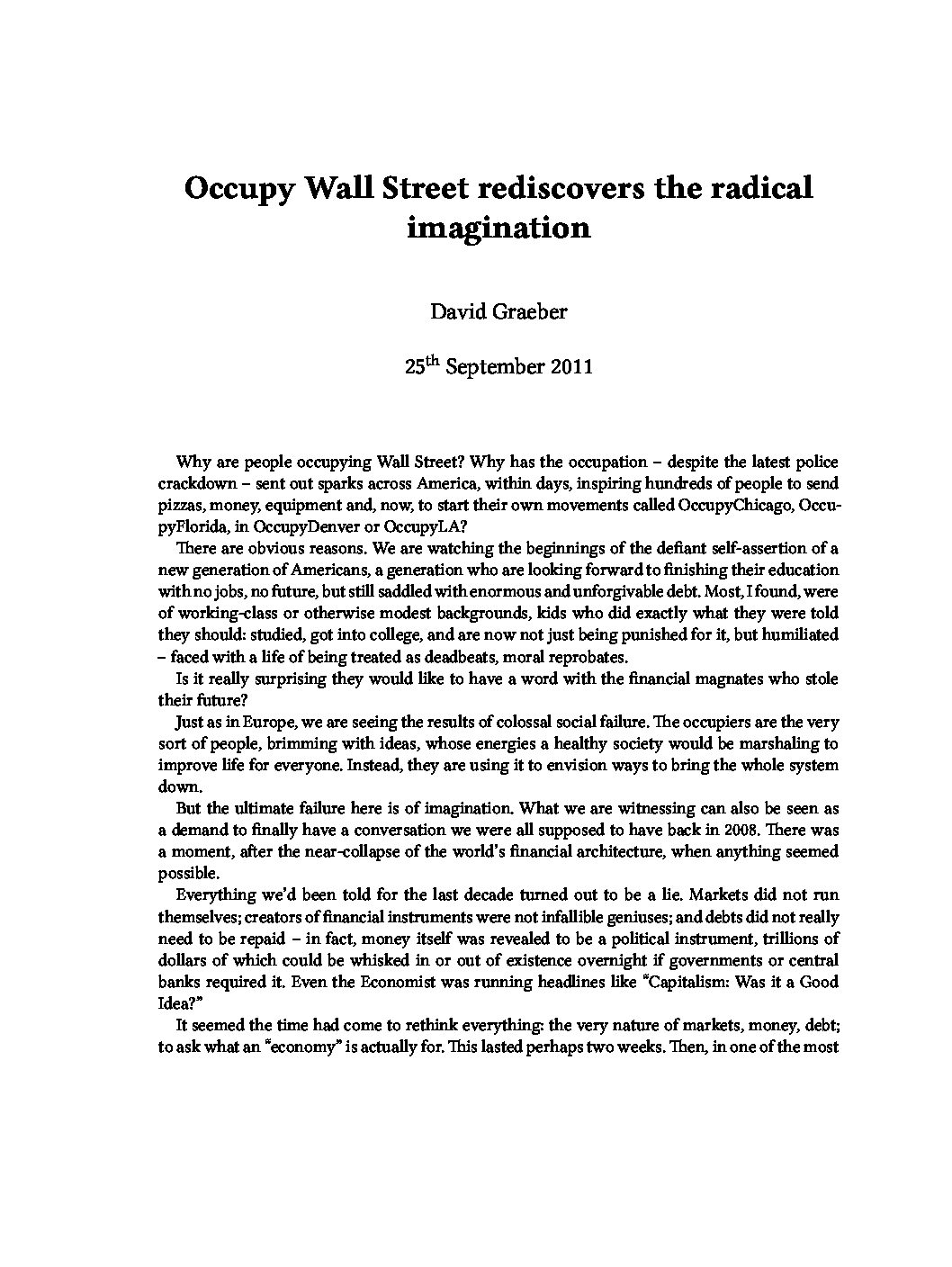
Occupy Wall Street rediscovers the radical imagination
Why are people occupying Wall Street? Why has the occupation – despite the latest police crackdown – sent out sparks across America, within days, inspiring hundreds of people to send pizzas, money, equipment and, now, to start their own movements called OccupyChicago, Occu- pyFlorida, in OccupyDenver or OccupyLA?

Occupy’s anarchist roots.
New York, NY — Almost every time I’m interviewed by a mainstream journalist about Occupy Wall Street I get some variation of the same lecture:

Occupy’s liberation from liberalism: the real meaning of May Day
Occupy's May Day rebirth, forging a new alliance of activists and union members, was a historic moment of anti-capitalist struggle

Occupy’s liberation from liberalism: the realmeaning of May Day
The US press seems to have decided that the Occupy movement is no longer a story. Pretty much no matter what we do. In New York, on May Day, something between 50,000 and 100,000 people marched through the streets – we don’t know the exact numbers because most papers didn’t report the event at all, and therefore, didn’t bother to make estimates.
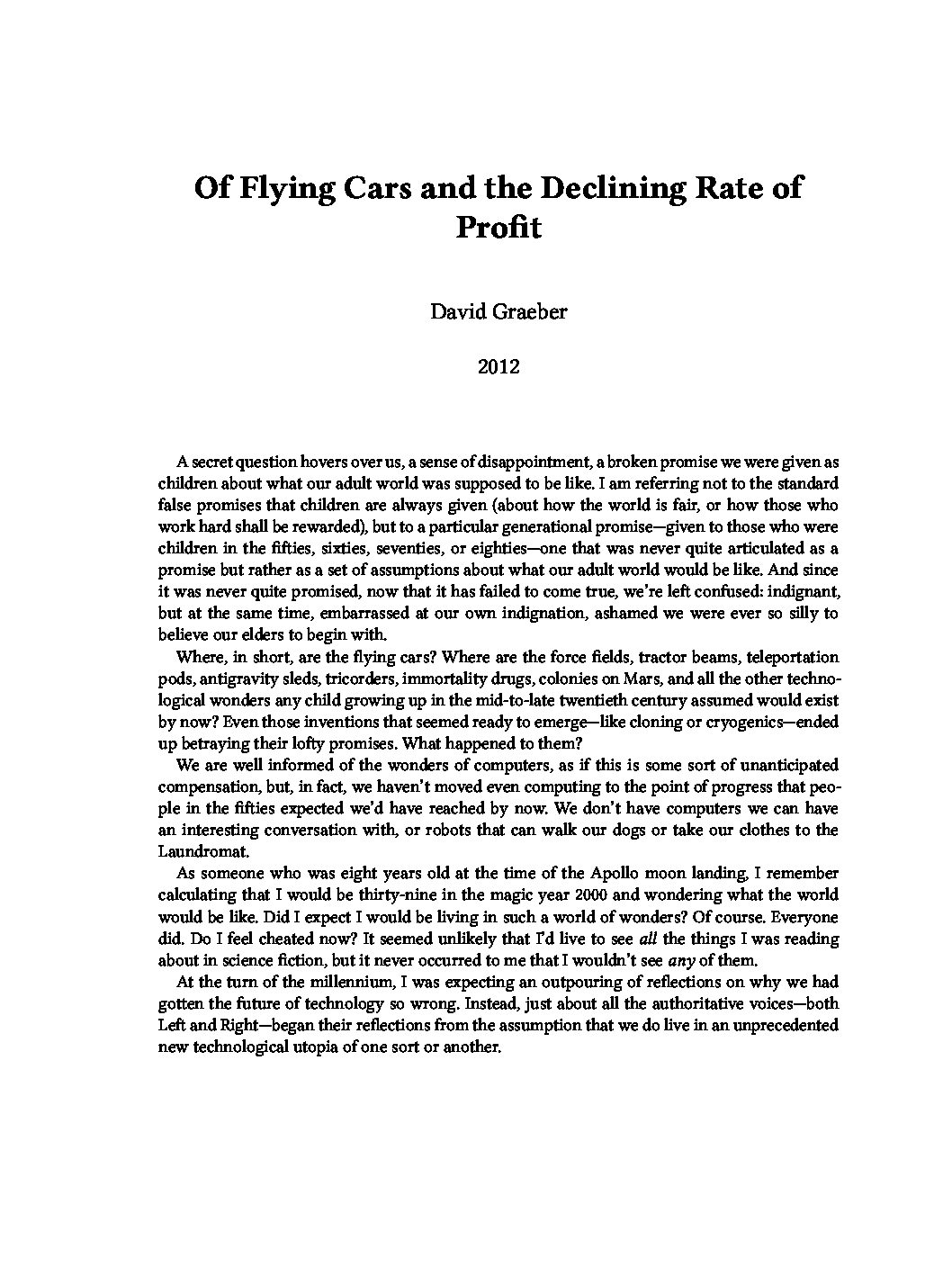
Of Flying Cars and the Declining Rate of Profit
A secret question hovers over us, a sense of disappointment, a broken promise we were given as children about what our adult world was supposed to be like.
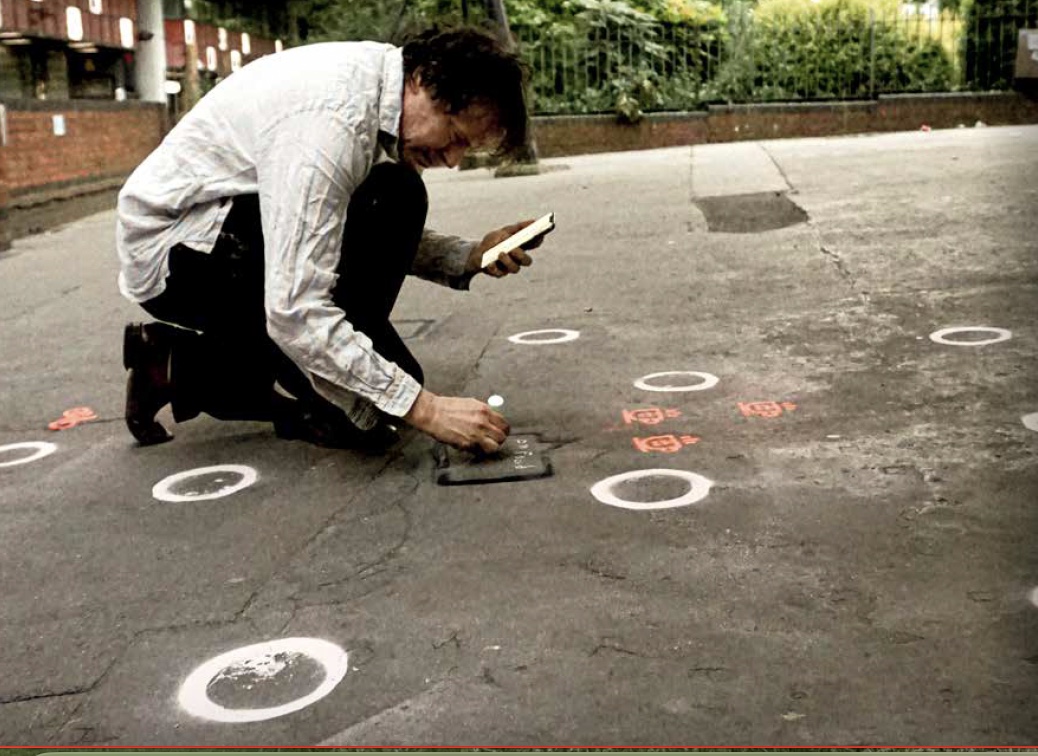
On a Museum of Care (in Rojava)
~2020
We produce a cup only once, but we wash and dry it a thousand times. David Graeber
Elif Sarican, Nika Dubrovsky, and Elizaveta Mhaili
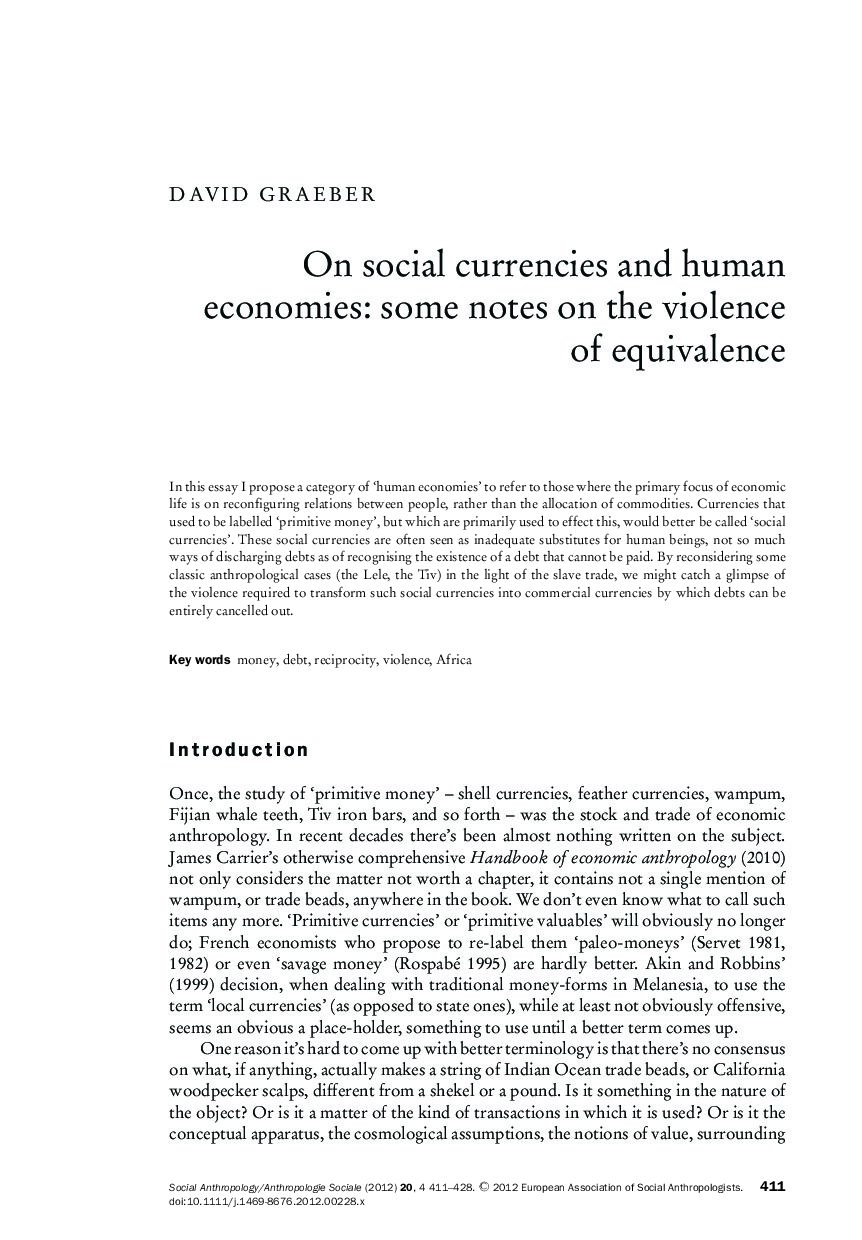
On social currencies and human economies: some notes on the violence of equivalence
In this essay I propose a category of ‘human economies’ to refer to those where the primary focus of economic life is on reconfiguring relations between people, rather than the allocation of commodities. Currencies that used to be labelled ‘primitive money’, but which are primarily used to effect this, would better be called ‘social currencies’.
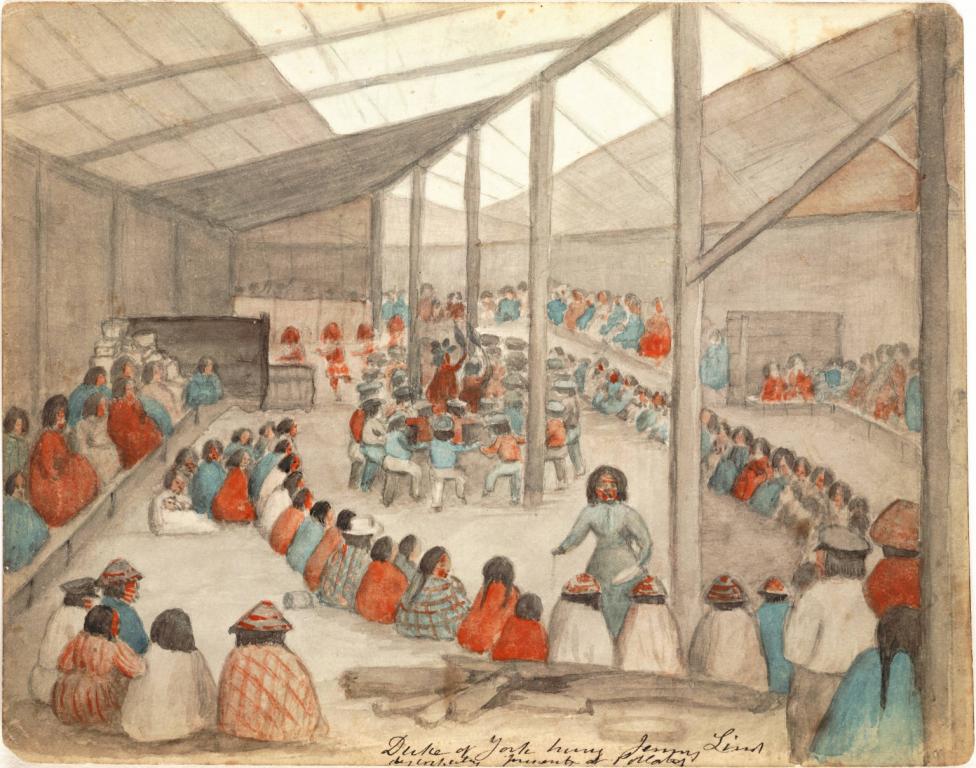
On the Invention of Money – Notes on Sex, Adventure, Monomaniacal Sociopathy and the True Function of Economics
Last week, Robert F. Murphy published a piece on the webpage of the Von Mises Institute responding to some points I made in a recent interview on Naked Capitalism, where I mentioned that the standard economic accounts of the emergence of money from barter appears to be wildly wrong.
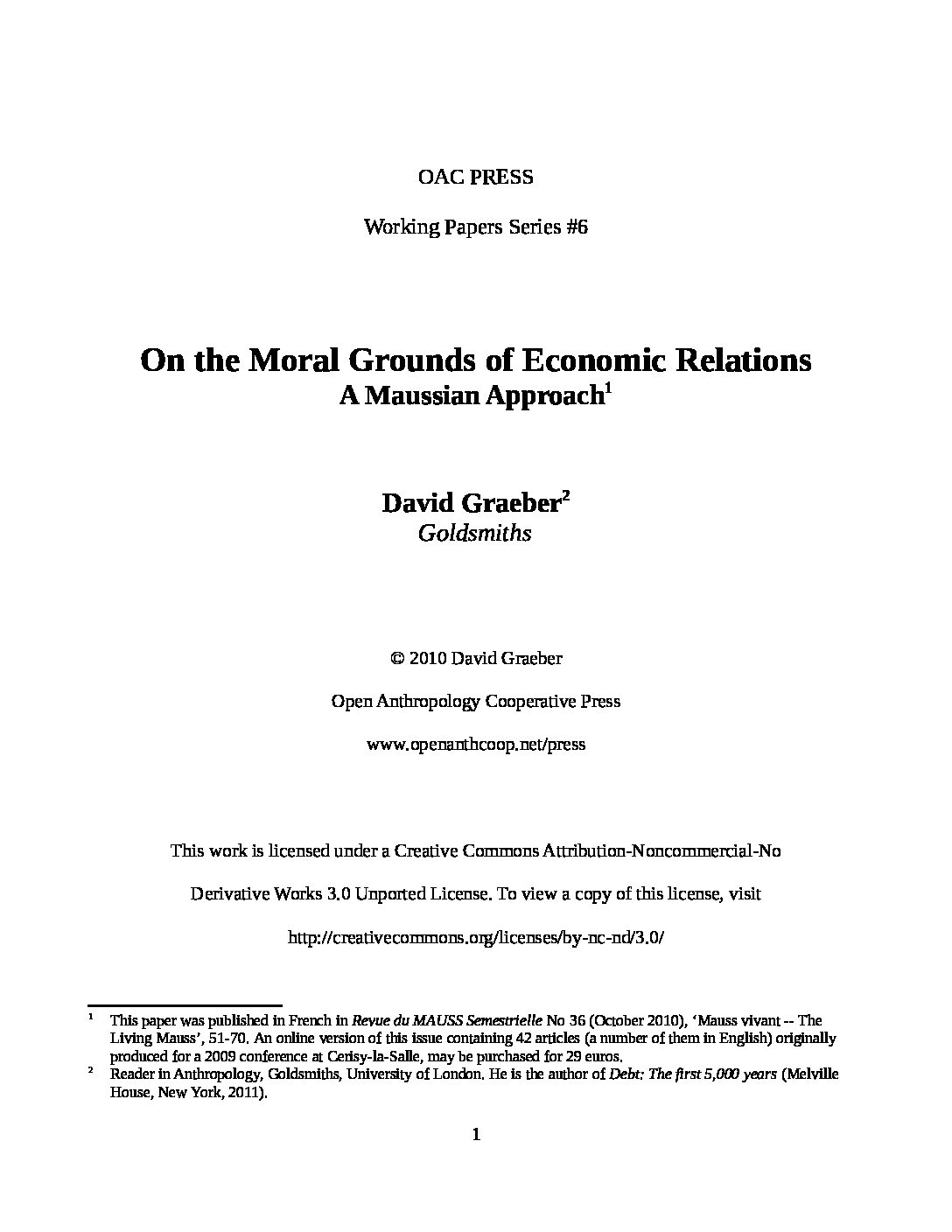
On the Moral Grounds of Economic Relations
For all the vast literature on “the gift,” the concept is surprisingly under-theorized. This is because everyone assumes that there is something called “the gift”, that all transactions not involving payment or the promise of payment are the same thing.
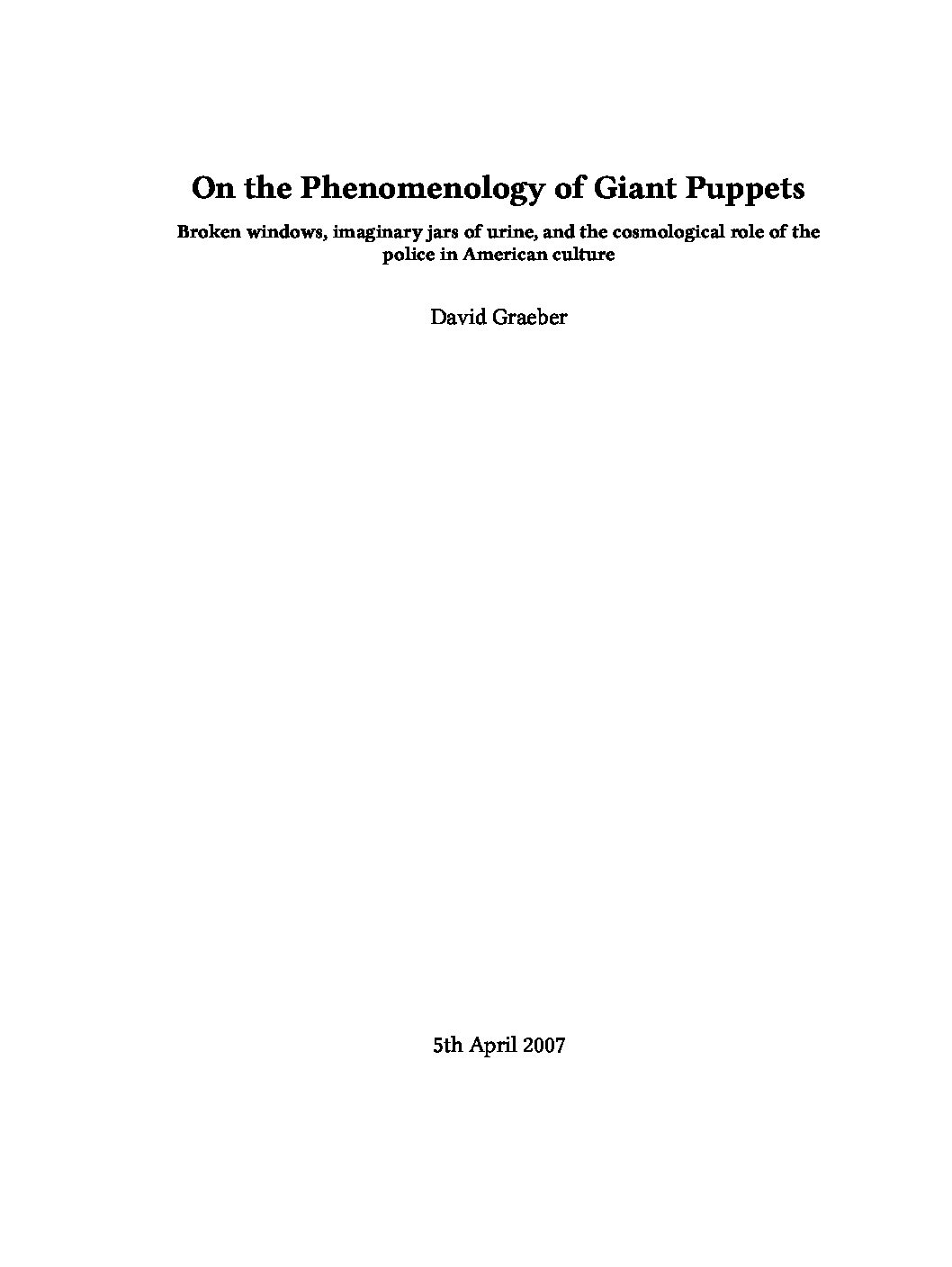
On the Phenomenology of Giant Puppets Broken windows, imaginary jars of urine, and the cosmological role of the police in American culture
What follows is an essay of interpretation. It is about direct action in North America, about the mass mobilizations organized by the so called “anti-globalization movement”, and especially, about the war of images that has surrounded it. It begins with a simple observation.

On the Phenomenon of Bullshit Jobs: A Work Rant
In the year 1930, John Maynard Keynes predicted that, by century’s end, technology would have advanced sufficiently that countries like Great Britain or the United States would have achieved a 15-hour work week. There’s every reason to believe he was right. In technological terms, we are quite capable of this.




